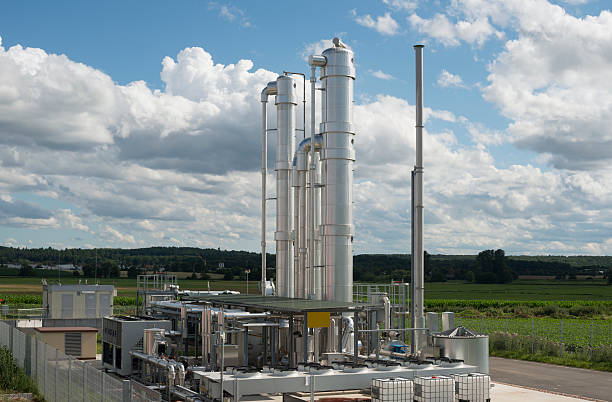Jo Tacon talks to fleet
management and leasing company Arval – fourth-largest in the UK and
part of BNP Paribas group – about its use of cutting-edge
technology and methods for delivering customer
service.
There is a revolution in terminology
underway in the fleet world. It is becoming increasingly difficult
to talk simply of “fleet leasing companies”, as every company worth
its salt which might once have been described as such now offers
much more than mere leasing. Arval, the fleet company owned by
French bank BNP Paribas, is a good example of this lexical shift,
according to head of consultancy, Jon Mackney.
“We prefer to talk about fleet management rather
than just leasing – it is important not to be a bank-owned lessor
that focuses on selling leasing, irrespective of what is best for
the customer,” he says.
“If contract hire is the best funding method for a
client then that’s great, but if you have a cash-rich customer not
afraid of taking on RV [residual value] risk, then it is important
to react to that and put together a pure fleet management
solution.”
The fleet company is the fourth-largest in the UK,
with a directly funded fleet of nearly 78,000 vehicles and a
managed fleet of 125,000. Internationally, Arval manages a fleet of
602,000, which helps considerably when negotiating volume discounts
with manufacturers.
How well do you really know your competitors?
Access the most comprehensive Company Profiles on the market, powered by GlobalData. Save hours of research. Gain competitive edge.

Thank you!
Your download email will arrive shortly
Not ready to buy yet? Download a free sample
We are confident about the unique quality of our Company Profiles. However, we want you to make the most beneficial decision for your business, so we offer a free sample that you can download by submitting the below form
By GlobalDataMackney says: “If you have a client with 2,000
vehicles on fleet in France, but only 300 in the UK, you can get
much better terms from OEMs [original equipment manufacturers] by
leveraging the international dimension to the fleet, and
consolidating the fleet spend.”
Arval has its UK headquarters in Swindon, with 850
of its 960 UK staff based in the Wiltshire town. It also has a
maintenance centre in Birmingham that employs a group of technical
staff, in the main qualified auto engineers, “as they are very good
at seeing what work really needs doing on a car”, Mackney notes. In
addition, the town has a pool of local mechanical talent upon which
Arval can draw.
Having BNP Paribas as a parent has been a source of
much comfort through the stormy waters of credit crunch and
recession, Mackney affirms.
“Traditionally, the French banks have taken a
sensible approach, so BNP Paribas remained strong during the
subprime crisis,” he says.
It is one of the six strongest banks in the world,
according to Standard & Poor’s, and the largest bank in the
eurozone by deposits.
The BNP Paribas relationship allowed Arval access
to funds at relatively low costs throughout the credit crunch and
subsequent recession; another advantage highlighted by Mackney is
that the bank has invested “significant sums” in systems and
technology for its leasing businesses, over a long timeframe,
giving Arval a stable platform from which to make future plans.
 Playing the fuel card
Playing the fuel card
Apart from its leasing and fleet management
services, Arval is well-known for its fuel card, which is the
market leader in the UK. Over 1.3m of its cards are in circulation,
either branded as Arval or issued on a white-label basis.
Its cards are accepted at 98% of the UK’s fuel
stations; 7% of all retail fuel is bought using an Arval fuel card,
amounting to a total of 63m such transactions per year. Fuel cards
can be used by fleet managers to track fleet vehicles’ miles per
gallon ratings, and carbon emissions, which is increasingly
important as clients look to control fuel costs and burnish their
environmental credentials at the same time.
The consultancy service, which Mackney heads up, is
also an important piece of the overall fleet management
offering.
“Fleet customers operate in a complex market. It is
vital that they get the best advice to help them navigate the
difficult issues inherent in running a fleet,” Mackney says.
The consultancy’s aim is to work with Arval’s
“strategic partners” – companies which have made a long-term
commitment to Arval, and not necessarily those clients which
operate a fleet funding panel in order to get the cheapest lease
rates possible.
“We are looking to work with clients that want to
get the maximum value from their fleet in a way which is aligned
with their corporate objectives: are cars provided as a perk or as
a business tool, or a mixture of the two?” Mackney comments.
The consultancy department has a training and
support library open to all account managers, so they can learn and
benefit from the accumulated knowledge stored therein, and use that
knowledge to improve the way clients’ fleets are run.
“That helps with customer retention,” Mackney says.
“We are also finding prospects are impressed by our consultancy
work.”
There is a debate over whether fleet providers
should or should not charge for their services. Arval opted to make
consultancy a complimentary service, in order to put the
consultancy team’s focus onto customer retention.
“We prove our value to Arval by boosting retention;
we prove our value to customers through more efficient and
better-run fleets. If we do our job properly, it is a win-win
proposition for all parties,” Mackney explains.
The consultancy arm has carried out 380 consulting
‘missions’ over the last four years, identifying £27m in savings
for clients, which works out to “an average saving of £652 per
vehicle per year”, Mackney states.
PCPs for cash takers
As part of a fleet policy review, any cash
allowances given to employees are scrutinised, as this type of
benefit can, over time, become decoupled from the cost of a company
car. Similarly, employee car ownership schemes – especially
those set up some years ago – may no longer be fit for purpose as a
consequence of changes in taxation, Mackney says, hence an urgent
need for review.
One trend which Mackney flags up as notable is that
of personal contract purchase schemes offered to cash takers, using
a corporate discount from the OEM in question to make the scheme
financially attractive.
“This type of arrangement can allow employees to
maximise the benefit they derive from their cash allowance, as long
as business mileage is sufficient and fuel allowances are taken
into account,” he notes.
He also points out a paradoxical potential downside
for a large customer which is able to negotiate a significant
volume discount for its company car fleet. As company car rentals
reduce, due to improved purchasing terms, the employer should also
reduce the cash allowance paid to cash takers; otherwise it will
fail to achieve any financial benefit from its cash takers.
“Inevitably, the lower cash allowance encourages
more people back into the company car scheme,” Mackney says.
Technology to the fore
Arval offers its clients analysis of
whole-life costs as well as of the true cost of operation, which is
calculated as the whole-life cost of a vehicle in terms of its list
price, lease rentals, tax bracket, predicted maintenance costs, and
fuel consumption, among other factors. In addition, there are the
‘hidden’ costs which a company incurs when leasing a fleet of cars
or vans: administration costs, insurance, relief vehicles, end of
contract charges and so on.
Arval’s software can be used to show customers and
prospects how slight changes in fleet policy can have a large
cumulative effect on total fleet costs, while taking predicted
driver sentiment about changes into account. A simple red/green
‘traffic light’ colour system flags up areas where the proposed
policy could have potentially deleterious effects on cost, driver
satisfaction and the environment.
The advantage of a true cost of ownership approach,
Mackney says, is that it “involves all stakeholders”. Once a fleet
policy has been agreed on which satisfies all involved, two
documents are prepared: a partner plan, which sets out three-year
objectives including projected cost savings, and a business review,
which is carried out on a regular basis throughout the year to
check that predicted efficiencies are being achieved.
As a customer service measure, Arval employs a
system called Rectify which date-stamps any incoming customer
communication, and records how customer queries are resolved, which
allows the fleet provider to keep a close eye on how customer
service teams are working, Mackney adds.
Recession effects?
Arval has a “broad approach” to different
customer sectors, Mackney says, while recognising that different
types of client require a different approach – hence the existence
of the fleet company’s public sector team.
“Some client accounts want a purely transactional
approach, but others will invest more time and money with us and
may take a wide range of products and services,” he says.
The recent recession, meanwhile, did not drive
demand for different type of vehicle funding, Mackney observes –
although Arval, like other fleet companies, noticed a greater
demand for lease contract extensions. But there is a definite trend
towards “total outsourced solutions”, Mackney says, as customers
look to their duty of care obligations and seek to focus on core
business objectives. But this requires careful implementation.
He adds: “You have to have a good implementation
team, and if a policy doesn’t work from day one, it is an uphill
battle, so time invested in the implementation phase is time well
spent.
“During implementation, it is important we flush
out and document all aspects of a fleet’s policy, so, for example,
if we get a call from a driver whose car has broken down in the
middle of nowhere at 3am, we know exactly what advice to give and
how to support the driver, in line with his employer’s fleet
policy.’’
Van policy
The whole-life cost methodology used by
Arval applies equally well to vans, thanks to the new information
available on CO2 ratings and fuel consumption.
It is vital, says LCV manager Tony Grove, that van
customers “rightsize” their vehicles. If a customer has taken on a
large van when such a vehicle is only required a couple of times a
month, Grove says, judicious use of daily rental and a switch to a
smaller model can save significant sums.
It can be easier to modify van policy, he adds,
since such vehicles are provided as business tools in the vast
majority of cases, so there is not the same level of attention to
driver preference as there is with car fleet policy.
“Drivers can still be very keen on their vans, so
care does have to be taken, and some van drivers are just as
badge-conscious as car drivers,” Grove adds.
Most LCV fleets take one of two approaches to
operating their vehicles, he says: either vans are ‘pool’ vehicles,
or drivers are allocated a van. In the latter scenario maintenance
costs are reduced as vans tend to be better looked after, Grove
notes, and drivers tend to be more badge-sensitive.
“As with car fleets, customers have focused on cost
savings achievable within their van fleets over the last two years.
This has led to a cut in excess capacity as there is no point
running a van that is larger than you require,” Grove says,
pointing out that a large van may only get 25-30 miles per gallon
compared with a smaller model’s 50.
Again, as with car fleets, van fleet customers
looked to extend contracts rather than renew, amid economic
uncertainty.
“There is evidence this is causing reliability
concerns and problems with expensive repairs, and time off the
road,” Grove says.
“Time off road can be easily converted into a cost
for the customer, as if a van earns, say, £400 a day for a
tradesman, then three days off the road will cost £1,200 – a huge
cost to a business, if you scale it up.”
Arval’s consultancy team has seen a significant
increase in the number of prospects and customers that now want
help to optimise the cost of ownership taking account of retention
periods, maintenance costs and down-time.
The key is to manage van fleets in an active
fashion, which can include getting vans serviced outside normal
working hours.
“Arval’s network of truck workshops are sometimes
open overnight, and are happy to repair vans, as they have the
excess capacity,” Grove says.
He points to an example of a client with a
750-strong van fleet, which was able to achieve annual savings of
£500,000 through active downtime management.
CO2 emissions will become as
important for vans as they are for cars, Grove believes, with EU
targets on the horizon.
“Van operators will go green, working down from
corporate customers,” he says. “Fuel management is crucial to van
operators, too – if it costs white van man £80 to fill up his tank
with diesel, that is a big hit to the pocket, and if he can reduce
that, he will.”
Arval’s LCV division works in partnership with
sister company Artegy, which handles leases of heavier trucks.
“Sometimes we go in to a customer together,
although a lot of customers manage their truck fleet separately. We
also pass on business to each other,” Grove explains.
Looking to the future
Mackney is confident about the future for
Arval. The fleet company is trialing electric vehicles (see
Motor Finance 64) and keeping its customers up to speed with
developments in all areas of fleet operations. With the backing of
BNP Paribas and a strong focus on customer service, Arval looks
like it will be in the fleet management and leasing market for a
long time to come.







